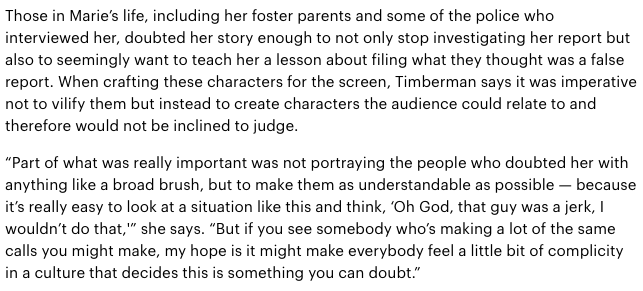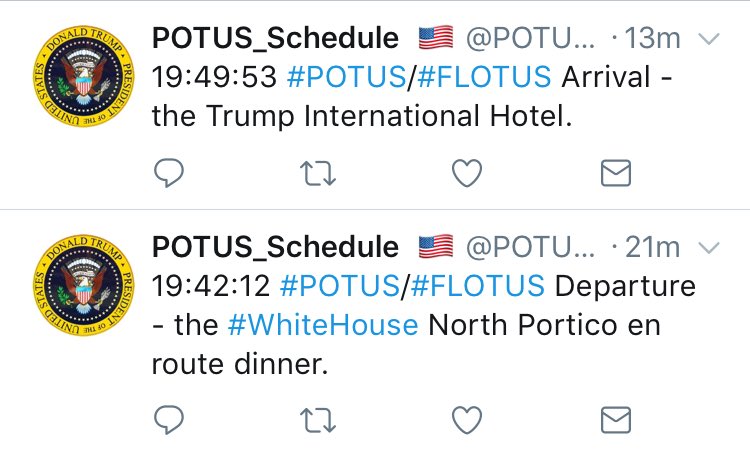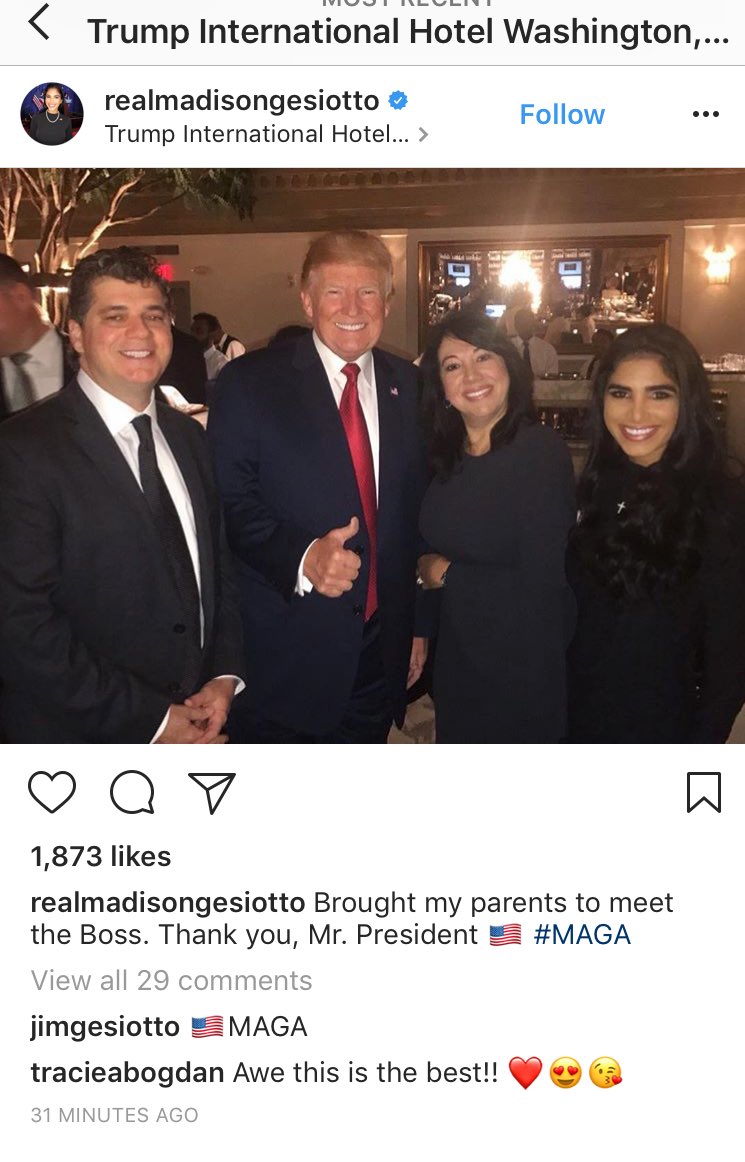But we’ve also seen some sentiment online that concerns us.
I'd like to talk about that.
I worked on the story while at The Marshall Project with ProPublica’s @txtianmiller and This American Life’s @RobynSemien.
In the series, it’s not easy watching these doubts form, fuse & spread. It’s upsetting. Or worse. Some viewers have judged the foster moms & police with no mercy.
And having sat with them—and heard them reconstruct how they went astray—I’ve come to appreciate the courage it takes to own our worst mistakes.
In this case I was asking: Please tell me about this terrible mistake you made. Tell me how you went wrong; tell me your regrets; tell me the consequences.
That is a big ask.
If you watch Unbelievable & get upset at scenes in which Marie is doubted, please know: The scenes could be reconstructed fully only because the foster moms were so candid & forthcoming.
Also know: Both apologized to Marie. Marie accepted their apologies. To this day, Marie keeps ties with both.
This foster mom, in real life, knew she had to apologize in person.
She and Marie took a walk in the woods. About 100 yards down the trail, she told Marie how sorry she was that she hadn’t believed her.
W/ Robyn, I interviewed a Lynnwood police commander, a sergeant & the case’s lead detective.
I’ve been a reporter a long time. While @ChicagoTribune I wrote about the criminal justice system’s failures w/ @smmills1960 (now, too, @ProPublica) & @mauricepossley.
—confessions coerced by police chicagotribune.com/investigations…
—misconduct by prosecutors chicagotribune.com/investigations…
—faulty evidence and unscrupulous trial tactics that put innocent people on death row chicagotribune.com/investigations…
In Lynnwood, the reaction was different.
They ordered an external review. (It was scorching.)
They accepted blame.
They made changes.
They apologized to Marie—in person. The brass apologized. The lead detective apologized.
The commander told us:
“Knowing she went through that brutal attack—and then we told her she lied?”
“Each one of us will remember this case forever.”
“We don’t want to see this happen to anybody ever again.”
During our interview, I asked him if he thinks often of Marie.
It was such a simple question. But it hit him like a poleaxe.
The silence lingered as he tried to collect himself. Twenty-nine seconds passed—in that room, it seemed an eternity—then he excused himself.
When he returned to the room, he said:
“Yeah, I do.”
“When I think of Marie, it’s more of how she is doing now.”
“I hope that she’s okay.”
He absolved the foster mom who called him of any blame.
She was relaying information she thought was important, he said.
That he used what she said in the way that he did is on him, he said.
Executive producer Sarah Timberman told @Variety “it was imperative not to vilify” the foster parents and police: variety.com/2019/tv/featur…

She hugged her foster mom. She told her it was OK, that she forgave her.
“I’m a forgiving person,” Marie told me. “I was born with that, or something. It might take a while to forgive or trust, but I do forgive.”





